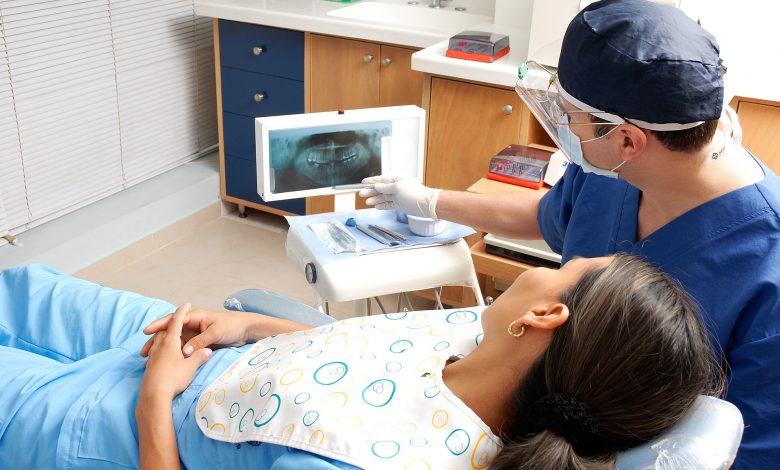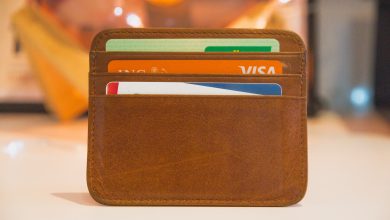What Is a Dental Credit Card and Do You Need One?

Patients may use a dental credit card to take care of related medical expenses. After all, the dentist is part of any consumer’s life, regardless of their age. Firstly, an infant needs to see a specialist to ensure that their teeth are growing normally. After that, when they become a teenager, braces may be necessary. Equally as important, young adults need a dentist to pull their wisdom teeth, and senior citizens must maintain their oral health as they get older. Above all else, patients of all ages rely on ongoing cleanups and cavity checks.
Most medical insurance policies, including Medicare, don’t cover dentist visits. Similarly, many dental plans will require you to pay a copay on certain types of treatment. Other procedures may not be covered, to begin with. Additionally, patients can easily cope with or ignore oral health problems, much more so than when they deal with a broken bone or a heart condition, to name a couple of examples.
In short, the combination of high costs and minimal pain drive consumers away from getting the oral medical care that they need. Because of this, many providers offer their own dental credit card. Applicants are more likely to get approved for one than if they applied for a personal loan or line of credit from a financial institution. A dental credit card makes oral health procedures more affordable, and just as importantly, it builds your FICO score.
Do You Need a Dental Credit Card?
Most of the time, the answer is yes. This is true whether or not you have an existing dental insurance policy.
Firstly, many plans will only take care of biannual or annual cleaning appointments. Meanwhile, the majority of dental policies don’t cover braces, wisdom teeth removals, or root canal problems.
For example, the average cost of pulling out a single wisdom tooth is $416 with insurance. Patients that don’t have coverage could pay as much as $750 per tooth.
Similarly, an insured patient incurs almost $3,500 in out-of-pocket expenses when they want to get braces. Without a dental plan, patients may pay up to $5,000.
Cavity fillings cost uninsured consumers $350. If you have a policy, it will probably cover 50% to 80% of that cost. In turn, patients have to take care of the remaining 20% to 50% of the $350 cavity-filling bill, which would equal between $70 and $175.
Filling the Gaps
The cost of dental procedures is even more burdensome because many consumers are uninsured. For instance, 23% of Americans don’t have a dental plan, which is twice as many people that go without medical insurance.
To add to that, one-third of U.S patients did not see a dentist in over a year. About 40% of them say that visiting an oral health provider is too expensive.

It shouldn’t be a surprise, therefore, that many facilities offer a dental credit card. Uninsured patients may take care of their bill in small monthly increments, which is almost identical to paying dental insurance premiums.
Equally as important, consumers that have coverage could also use a dental credit card to avoid paying up-front for uncovered procedures (such as cavity fillings and braces).
Dental Credit Cards and Your Credit Score
If you can’t pay the dentist bill, there are two main options: Apply for a personal loan/line of credit or make a payment arrangement with the provider. Both of those approaches, however, aren’t as advantageous as a dental credit card.
Firstly, lenders are much less likely to approve an applicant with bad credit. While building your FICO score takes time, a cavity or a troublesome wisdom tooth cannot wait.
Secondly, if you pay your bill in monthly installments, the cost of a dentist visit becomes easier to handle. Yet this approach doesn’t build your credit, even if you make every payment on time.
A dental credit card, on the other hand, solves these problems. Unlike a bank or a financial institution, dentists are much more lenient when they check an applicant’s background and credit.
Furthermore, when you make timely payments on a dental credit card, your FICO score will reflect that.
Criticisms, Problems, and Inconveniences
Some people don’t argue in favor of getting a dental credit card for two main reasons: Providers will still conduct a background check and dental credit card holders may only use it at the dentist.
While these concerns are legitimate, they are mostly related to inconveniences, as opposed to unsolvable problems.
When an applicant is denied a dental credit card because of their bad FICO score, they still have other payment options. Providers will allow patients to make monthly installments when they can’t get approved for a line of credit.
In essence, financing and a dental credit card both take care of your medical bills. Even though an installment plan doesn’t build your credit score, it allows you to establish a relationship with the dentist and demonstrate your ability to pay on time.
After that, the doctor’s office will be more likely approve a future dental credit card application. This approach makes it possible to build credit over time, but without having to put medical treatment on hold.
Secondly, while patients can only use this line of credit at the dentist, this isn’t a major hurdle. If you make your payments on time, your FICO credit score will grow and allow you to qualify for other, non-medical cards.
In Short: The Benefits of a Dental Credit Card
Many consumers struggle to afford a visit to the dentist. Almost every insurance policy provides limited coverage and requires you to pay (either in part or in whole) for certain dental procedures.
Uninsured patients have to incur even more out-of-pocket expenses.
A dental credit card, on the other hand, takes care of these costs. In turn, holders can pay them back at a desired and an affordable amount.
While providers will still check your background, consumers with a bad FICO score are more likely to be approved for this type of credit card, especially in comparison to getting a personal loan.
Those who are rejected can set up a monthly payment plan with their dentist. Afterwards, when they demonstrate their ability to honor these costs, a provider may approve the patient’s dental credit card application in the future.

Have you delayed any dentist visits or procedures because of the cost? Does your insurance policy contain a lot of gaps in coverage?
If the answer is yes, then you will certainly benefit from a dental credit card. In short, it is beneficial for your financial and oral health, alike.



